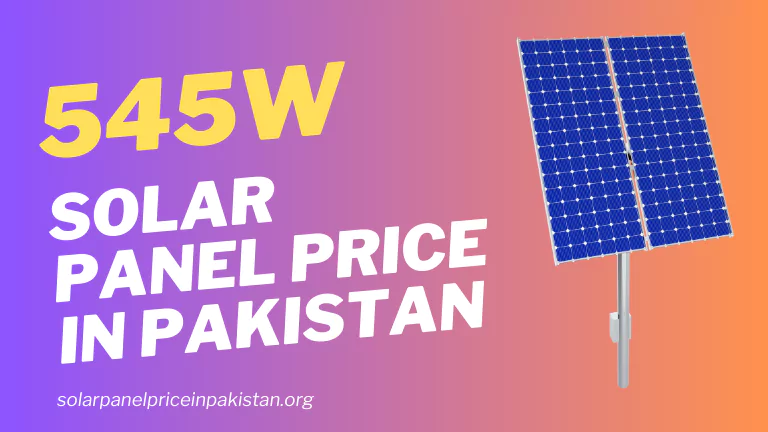What is Net Metering?
In a world increasingly aware of environmental issues and the necessity for sustainable living, innovative solutions like net metering are transforming how we consume and produce energy. Particularly in Pakistan, where the electricity demand is growing and the environmental impact of traditional energy sources is concerning, net metering presents a promising alternative.
But what exactly is net metering, and how can it benefit Pakistan? Let’s dive into this comprehensive guide to understand its workings, benefits, and implementation.
What is Net Metering?
Understanding the Basics
Imagine you’ve installed solar panels on your rooftop. These panels capture sunlight and convert it into electricity, powering your home. But what happens when your solar system generates more electricity than you use? That’s where net metering comes in. It allows you to send excess electricity back to the grid, and in return, you get credited on your electricity bill. It’s like having a virtual energy bank where you deposit surplus energy and withdraw it when needed.
How Does Net Metering Work?
Net metering involves a special meter that can track both the electricity you consume from the grid and the surplus electricity you send back. When your solar panels generate more power than you need, the excess energy flows back to the grid, and the meter runs backward, crediting your account. During times when your panels aren’t producing enough energy (like at night), you draw power from the grid, and the meter runs forward.
The History of Net Metering in Pakistan
Early Beginnings
Net metering was introduced in Pakistan by the National Electric Power Regulatory Authority (NEPRA) in 2015. The goal was to encourage the adoption of renewable energy by making it financially appealing for consumers to install solar panels and other renewable energy systems.
Recent Developments
Since its introduction, net metering has seen significant uptake in Pakistan. The government’s supportive policies and the falling costs of solar technology have driven more households and businesses to adopt this system, contributing to a gradual shift towards renewable energy sources.
Benefits of Net Metering
Energy Independence
Net metering empowers you to become an energy producer, reducing your reliance on the grid. This not only provides energy security but also protects you from fluctuations in electricity prices.
Economic Advantages
By generating your own electricity, you can significantly reduce your electricity bills. In some cases, you might even eliminate your electricity costs, as the credits from excess energy can offset your consumption.
Environmental Impact
Net metering encourages the use of renewable energy sources, reducing the reliance on fossil fuels. This leads to a decrease in greenhouse gas emissions, contributing to a cleaner and healthier environment.
How to Implement Net Metering in Pakistan?
Understanding the Process
Implementing net metering involves several steps, but breaking them down makes the process manageable. Here’s a straightforward guide to get you started:
1. Initial Assessment and Planning
Assess your energy needs and the solar potential of your property. Look at your electricity bills to understand your consumption patterns and check if your property has good sunlight exposure.
2. Selecting a Service Provider
Choose a reputable solar power system provider. They will guide you through the installation process, helping you select a system that fits your needs and budget.
3. System Design and Installation
The provider will design a system tailored to your energy needs and install it on your property. This includes mounting solar panels, setting up inverters, wiring the system, and connecting it to your electrical grid.
4. Approval and Inspection
After installation, apply for approval from your local Distribution Company (DISCO). They will inspect the installation to ensure it meets safety and technical standards.
5. Net Meter Installation
Once approved, a net meter will be installed to measure your energy consumption and the surplus energy sent back to the grid.
6. Enjoy Your Solar Power
Start generating your electricity and earn credits for surplus power. Over time, these savings can cover the initial installation costs.
Key Challenges and Possible Solutions
While net metering has many benefits, it faces several challenges in Pakistan:
Lack of Awareness
Many people are still unaware of the benefits of net metering. Raising awareness through educational campaigns can help.
Technical Issues
Technical challenges, such as grid compatibility and maintenance of solar systems, need to be addressed. Training and support services can mitigate these issues.
Financial Constraints
The initial cost of installing a solar system can be high. Government incentives and financing options can make it more affordable for consumers.
The Future of Net Metering in Pakistan
Potential Growth and Expansion
With Pakistan’s abundant sunlight, the potential for solar energy is immense. As the cost of solar technology continues to fall, more people are likely to adopt net metering, leading to significant growth in the sector.
Government Policies and Regulations
The Pakistani government’s commitment to renewable energy is evident in its policies. The Alternative Renewable Energy Policy 2019 aims for 30% renewable energy in the country’s total power production by 2030. Effective implementation of these policies will be crucial for the growth of net metering.
Conclusion
Net metering is a game-changer for Pakistan’s energy landscape. It offers a sustainable, cost-effective way to generate electricity, reducing reliance on fossil fuels and lowering carbon emissions. By embracing net metering, households and businesses can achieve energy independence, save on electricity costs, and contribute to a greener future.






